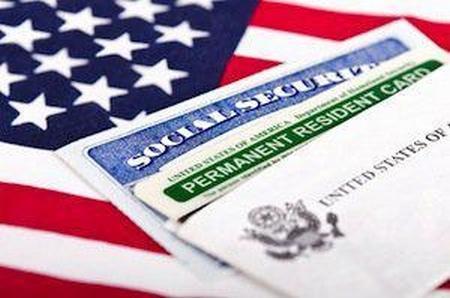Recent Blog Posts
The Leading Causes behind Divorce
 In a past study, findings showed that married women who had a stronger educational background than their husbands would be more likely to experience divorce. The statistics were based largely on the gendered stereotypes, which in the past led to marital unrest where traditional gender roles were being tossed aside. However, a new study published in July 2014 suggests that the previous research may be the exception and not the rule.
In a past study, findings showed that married women who had a stronger educational background than their husbands would be more likely to experience divorce. The statistics were based largely on the gendered stereotypes, which in the past led to marital unrest where traditional gender roles were being tossed aside. However, a new study published in July 2014 suggests that the previous research may be the exception and not the rule.
The study suggests that due to the increase in the egalitarian nature of male and female relationships, educational disparities are no longer associated with a higher possibility of dissolution. The study also finds that couples who have similar educational backgrounds are now more likely to succeed then they were in the past. The numbers found in current demographics suggest that women serving as breadwinners and with the same educational background (or higher) than their spouses has become the new normal. A Pew Research Center study estimates that four out of 10 households has women as the chief moneymakers. Therefore, the question now asked is, what are the factors that lead to divorce these days?
New Law Regarding the Illinois Transit System
Accidents causing injury and death can occur in a number of ways and involve any mode of transportation. And although car accidents may be the most common form of crash, there are notable examples of Illinois train accidents which resulted in injuries.
Information Accessibility
On August 22nd, Governor Quinn signed a bill to reform Illinois' mass transit hiring policies. In addition, citizens of the state will have easier access to information online, including mass transit employee salaries and safety and budget information. One benefit touted by the Governor in regards to the new bill was that it would result in increased government accountability. Other proponents of the bill say such legislation will likely prove beneficial to taxpayers, as it promotes a checks-and-balances process regarding large amounts of taxpayer dollars. The increased access to information about the transit system is seen as a victory to taxpayers.
Promoting Safety around Illinois Railways
Illinois railways can be the site of several serious accidents, including crashes involving trains or accidents with vehicles or pedestrians. As means to create an awareness of vehicle and pedestrian safety, Governor Quinn declared the week of September 14–20 as "Illinois Rail Safety Week." The week is meant to specifically address safety concerns about vehicles and pedestrians around trains and railroad tracks.
In 2013, there were approximately 126 crashes at railroad crossings involving cars in the state of Illinois. The crashes resulted in at least 40 injuries and 21 deaths. Also last year, 52 crashes involving pedestrians, who may have trespassed onto railroad property, ended in 27 injuries and 25 deaths. Across the country, Illinois came in third when ranked among others regarding fatalities from both car crashes and trespasser incidents.
Many state agencies have joined the cause, including the Illinois Association of Chiefs of Police, the Chicago Police Department, and both local and railroad law enforcement, as well as first responders and representatives from railroad companies. All of these entities are working together to educate Illinois citizens about railway safety.
What Are Priority Dates and Cutoff Dates?
 If you are interested in emigrating permanently to the United States, there are certain actions you must take. You must file a petition with all of the appropriate supporting documentation, including proof of identification. However, even after you have submitted your information and received a favorable outcome, you may still have to wait before your petition can be granted. Only so many green cards can be issued in any given year, and in order to keep track, a system of dates has been created. It can be confusing, and sometimes an expert’s assistance is a boon.
If you are interested in emigrating permanently to the United States, there are certain actions you must take. You must file a petition with all of the appropriate supporting documentation, including proof of identification. However, even after you have submitted your information and received a favorable outcome, you may still have to wait before your petition can be granted. Only so many green cards can be issued in any given year, and in order to keep track, a system of dates has been created. It can be confusing, and sometimes an expert’s assistance is a boon.
Preference Categories
Immigrant visas for immediate relatives of U.S. citizens are always unlimited. But if you are not a spouse, parent, or minor child of a U.S. citizen, your petition likely falls into what United States Citizenship and Immigration Services (USCIS) calls a preference category. Preference categories are capped at 226,000 visas or green cards per year (not per category). Because of this cap, individuals who apply for a visa generally will not receive it within the same year.
New Law Strengthens Child Protective Services
 This August, Governor Pat Quinn signed and put into effect Senate Bill 2909 and House Bill 5598, with the purpose of strengthening Illinois child protective services and providing more help to parents who have children suffering from serious mental health issues. The new bills amend the Children and Family Services Act, and permit parents to seek the services of the State when dealing with children who have serious mental illnesses or emotional disturbances, without having to terminate their parental rights in the absence of any type of abuse or neglect. The new law allows parents, who may no longer be able to care for their child because of a mental illness or emotional disturbance, to relinquish their child to the Department of Children and Family Services so that the child may receive the utmost care that his or her parent is unable to provide.
This August, Governor Pat Quinn signed and put into effect Senate Bill 2909 and House Bill 5598, with the purpose of strengthening Illinois child protective services and providing more help to parents who have children suffering from serious mental health issues. The new bills amend the Children and Family Services Act, and permit parents to seek the services of the State when dealing with children who have serious mental illnesses or emotional disturbances, without having to terminate their parental rights in the absence of any type of abuse or neglect. The new law allows parents, who may no longer be able to care for their child because of a mental illness or emotional disturbance, to relinquish their child to the Department of Children and Family Services so that the child may receive the utmost care that his or her parent is unable to provide.
What is a Fair Settlement Offer?
Many of those who are not familiar with the law or court cases have a number of questions upon finding themselves involved in a lawsuit. Such inquiries are to be expected, and can come up at different points in the legal process as a case proceeds in court. However, some questions are more critical than others. When it is considered that many cases end up settling out of court before going to trial, it should not be surprising that one such critical questions involves what is considered a fair settlement offer.Settling a Case
The concern with whether a settlement offer is fair, of course, involves the concern that a plaintiff will end up taking an offer that is less than what his or her case is worth. An experienced accident and injury attorney can help his or her clients calculate a good value of a case. It goes without saying that the specific value of a case will vary greatly depending on multiple factors and the circumstances surrounding the specific matter at hand. These circumstances can include lost wages, medical expenses, pain and suffering, the existence of permanent injuries or disabilities, and loss of quality of life.
Tragic Accident Results in Extra Safety Measures
In July, two fatal accidents in a construction zone along Interstate 55 in the state of Illinois claimed five lives. In the wake of this devastating event, Governor Pat Quinn is urging officials to take action. He reportedly directed Illinois transportation officials and law enforcement personnel to determine if extra safety measures could be taken in the area in addition to putting a warning out to drivers to be extra cautious.
Increased Precautions
The governor's incentive for this call to action is to avoid any further harm caused by drivers who are being inattentive or exhibiting reckless behavior. Both of the fatal accidents that occurred within the I-55 construction zone, just 16 minutes apart, apparently involved semi-trucks. One of the truck drivers is allegedly facing charges related to improperly maintaining his log book, with additional charges potentially coming. The second accident involved two semi-trucks, and was the result of one driver suffering from an apparent medical condition.
Asylum and Credible Fear: Explaining the Standard
 When you apply for asylum in the United States, you must meet certain standards. Most importantly, the standard of what is known as credible fear must be met. Due to the current immigration crisis in the U.S., there is a lot of misinformation about the credible fear standard. Even among those who are in the know, there is discussion that insinuates dissatisfaction. It is important to understand what must be shown when seeking asylum, and very often an expert’s help can greatly smooth out the process.
When you apply for asylum in the United States, you must meet certain standards. Most importantly, the standard of what is known as credible fear must be met. Due to the current immigration crisis in the U.S., there is a lot of misinformation about the credible fear standard. Even among those who are in the know, there is discussion that insinuates dissatisfaction. It is important to understand what must be shown when seeking asylum, and very often an expert’s help can greatly smooth out the process.
What is Credible Fear?
Many believe that the credible fear standard is all that must be met in order to qualify for asylum. However, this is not the case. The credible fear standard is the first of many criterion that a potential asylee must satisfy.
To Procreate or to Not Procreate: Whose Right is Most Valid?
 In recent years, assisted reproductive technology has progressed rapidly and has provided women and men the opportunity to become parents. In 1985, through this new reproductive technology, 260 babies were born to parents who otherwise would not have been able to conceive. As of 2010, more than 61,000 children were born as a result of the newest technology. However, with the amazing results that have occurred from the utilization of this reproductive technology, also comes legal controversies in regards to the rights of the donors. Is the right to not procreate outweighed by the right to procreate?
In recent years, assisted reproductive technology has progressed rapidly and has provided women and men the opportunity to become parents. In 1985, through this new reproductive technology, 260 babies were born to parents who otherwise would not have been able to conceive. As of 2010, more than 61,000 children were born as a result of the newest technology. However, with the amazing results that have occurred from the utilization of this reproductive technology, also comes legal controversies in regards to the rights of the donors. Is the right to not procreate outweighed by the right to procreate?
Illinois’s Stand on the Right to Not Procreate
This legal controversy has been pushed in the direction of the right to procreate with a recent ruling by the Cook County court in Illinois. The Court awarded custody of the frozen embryos that were prepared prior to the woman’s chemotherapy treatment for her lymphoma. The chemotherapy had the effect of destroying the woman’s chance to conceive otherwise. Her now-ex boyfriend had originally agreed to provide his sperm for the embryos and later objected to the use of the embryos after the couple had split. The ex-boyfriend cited privacy issues, stating that the use of his genetic material could have a negative impact in regards to his future with other women.
How a Personal Injury Attorney Can Help You
Many car accident victims can feel overwhelmed in the days and weeks following such an incident. Everything from being treated for injuries, to having property replaced or repaired, to tending to time-sensitive personal affairs can take up most of an injured person's time and energy after an accident.
Often, the idea of taking legal action takes a backseat to matters that are seemingly more pressing. Perhaps finding an experienced attorney seems daunting, being compensated for injuries is a secondary concern to getting well, or the injured person is simply not sure if they even have a legal case. The best thing someone in this situation can do is reach out to a knowledgeable attorney who can discuss their case with them and determine what rights they have and how to protect them.
An Attorney Can Help
There are many benefits to seeking the advice of counsel following a car accident. An injured person likely has a long list of questions relating to the incident, and a good accident attorney can help to put their mind at ease. An attorney working in the best interests of their client allows the client to focus on other things, like rehabilitation and medical care
 English,
English,
 Spanish,
Spanish,
 Polish,
Polish,
 Urdu
Urdu













 Make a Payment
Make a Payment



